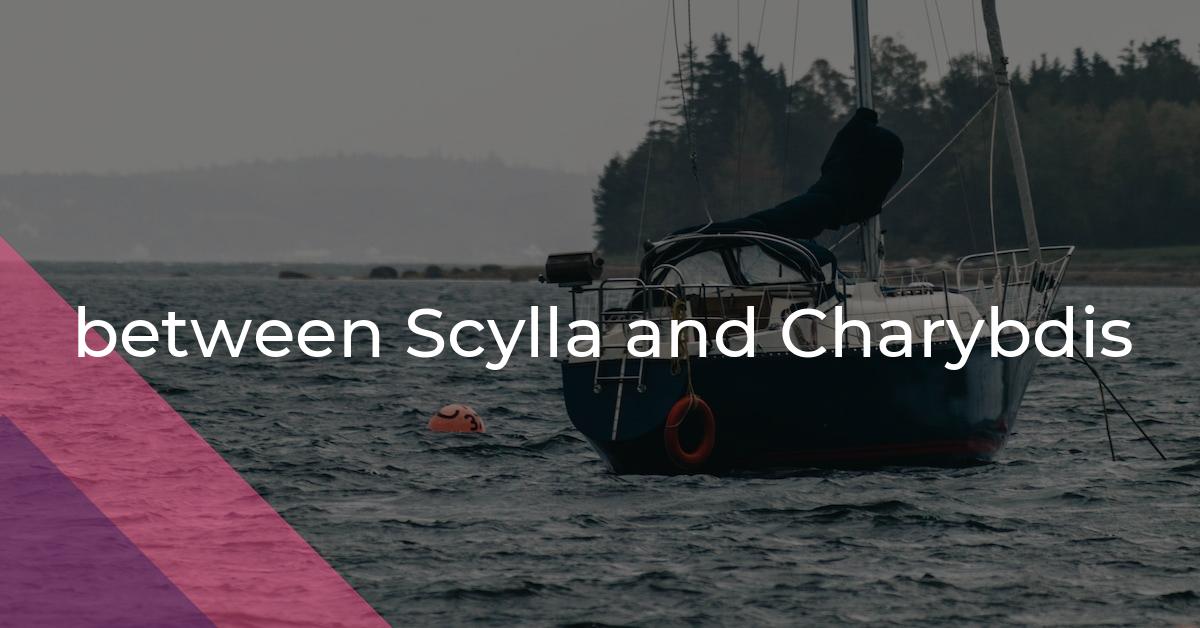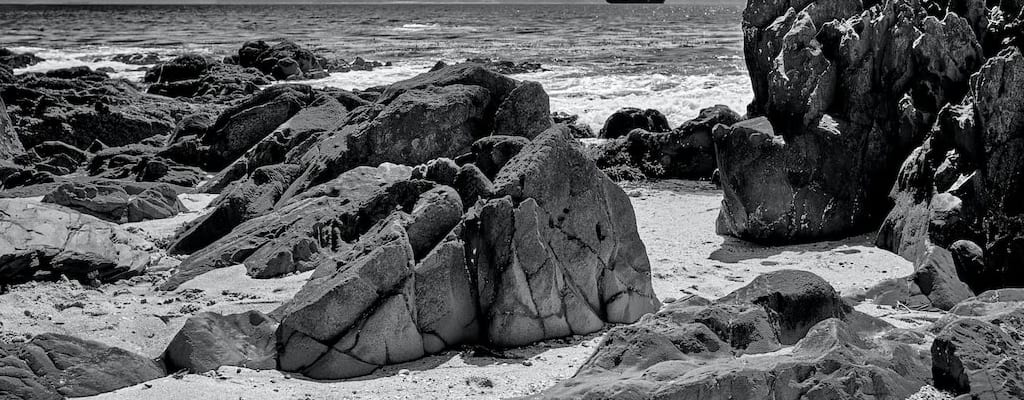between Scylla and Charybdis: Idiom Meaning and Origin
What does ‘between Scylla and Charybdis’ mean?
The idiom "between Scylla and Charybdis" refers to being caught between two equally challenging or dangerous choices, where any action taken is likely to result in negative consequences.

Idiom Explorer
The idiom "lesser of two evils" means choosing between two unfavorable options while selecting the one that is considered less harmful or negative.
The idiom "lady or tiger" refers to a situation where there are two equally probable outcomes, one favorable and the other unfavorable, resembling two doors. The outcome can be unpredictable or dependent on unknown factors.
The idiom "keep it between the ditches" means to stay on the safe path or to avoid unnecessary risks. It comes from the practice of driving on a road and staying between the marked lanes. Just as drifting out of the lanes can be dangerous, straying from the right course in life can have negative consequences.
The idiom "in the same boat" means being in a similar situation or facing the same difficulties as others.
The idiom "in a bind" means to be in a difficult or challenging situation where there are not many options or solutions available.
The idiom "hell to pay" means to face severe consequences or trouble for one's actions or decisions.
The idiom "happy medium" refers to finding a balance or compromise between two extremes or conflicting ideas.
The idiom "hang in the balance" means to be in a state of uncertainty or indecision, where the outcome is yet to be determined.
The idiom "get into trouble" means to find oneself in a difficult or dangerous situation due to one's actions or decisions.
The idiom "fly too close to the sun" refers to the Greek myth of Icarus, who ignored warnings and flew too high, resulting in his downfall. It means to take excessive risks or pursue ambitions without considering the potential consequences.
Perilous Passage Danger
The idiom "between Scylla and Charybdis" originates from Greek mythology and refers to a situation where one is forced to choose between two equally dangerous or harmful options. This dilemma is widely recognized and has been used in literature and everyday conversations to highlight the predicament faced by individuals in various contexts.
In Greek mythology, Scylla and Charybdis were two mythical sea creatures. Scylla, a fearsome sea monster, resided on a rocky cliff, while Charybdis, a formidable whirlpool, dwelled in the sea. These treacherous obstacles were situated on opposite sides of a narrow strait, posing a deadly threat to passing sailors.
Historically, the idiom gained popularity through Homer's epic poem, "The Odyssey." In the poem, the protagonist Odysseus was faced with the daunting task of navigating his ship through the dangerous waters between Scylla and Charybdis. This metaphorical representation of a perilous choice has enduring significance in literary history.
The idiom "between Scylla and Charybdis" has become a common phrase in the English language to describe a difficult decision. It is often used to convey situations where both options are undesirable, forcing individuals to carefully consider the consequences of their actions.
It is important to note that while the idiom provides a vivid and memorable image, its literal meaning is specific to the Greek mythological tale. It does not encompass the broader spectrum of decision-making or dilemmas that may arise in everyday life. However, its usage in different contexts has expanded its figurative interpretation to include any scenario involving a challenging choice.
The idiom "between the devil and the deep blue sea" is a related phrase that shares a similar meaning with the idiom "between Scylla and Charybdis." Both idioms describe a situation where one is faced with two equally undesirable options. "Between the devil and the deep blue sea" refers to being caught between two evils or dangerous situations, much like the mythological perils of Scylla and Charybdis.
Another related idiom is "between a rock and a hard place." This phrase also conveys a similar sense of being stuck between two difficult options with no clear or favorable outcome. Just like the perils faced by Odysseus, individuals caught between a rock and a hard place must carefully navigate through their choices, knowing that neither option is ideal.
The idiom "fall between two stools" is yet another expression that reflects the predicament of being caught between two unsatisfactory options. In this case, the idiom suggests that by not choosing one option over the other, individuals may end up losing out on both or failing to achieve their desired outcome. This fear of a lose-lose situation echoes the dilemma faced by Odysseus and the sailors who navigated the strait between Scylla and Charybdis.
Lastly, the idiom "doomed if you do, doomed if you don't" is also related to the idea of being caught between Scylla and Charybdis. This phrase emphasizes the feeling of helplessness when someone is aware that both choices lead to unfavorable consequences. It exemplifies the sense of being trapped in a lose-lose situation, much like the decision Odysseus had to make while sailing between the monstrous Scylla and the deadly whirlpool Charybdis.
The idiom "between Scylla and Charybdis" encapsulates the essence of being caught between two equally unfavorable options. Its origins in Greek mythology, its prevalence in literature, and its adaptation into everyday language reflect its enduring nature. Through its usage, this idiom allows individuals to convey the struggle faced when confronted with a no-win situation. It serves as a reminder of the complexities of decision-making and the importance of carefully navigating difficult choices.
Example usage
Examples of how the idiom *between Scylla and Charybdis* can be used in a sentence:
- She found herself in a difficult situation, having to choose between Scylla and Charybdis.
- The new government is caught between Scylla and Charybdis, trying to balance the needs of the people with the demands of the economy.
- The team had to navigate between Scylla and Charybdis, avoiding excessive risk while still striving for success.
More "Peril" idioms
We missed the mark - nothing found.



